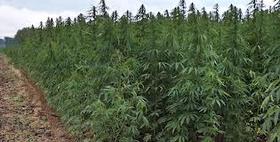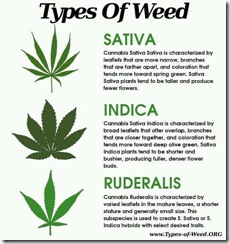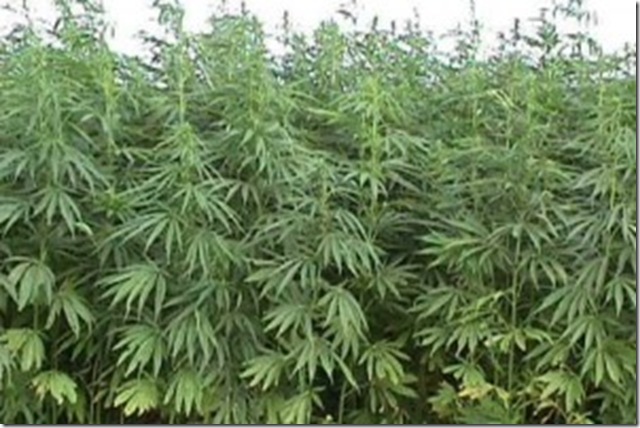 As states of a more liberal bent battle the federal government over the legalization of medical and even recreational marijuana, another cannabis battle has reemerged in the farm states. But if pot smoking raises troubling moral and safety questions, industrial hemp does not.
As states of a more liberal bent battle the federal government over the legalization of medical and even recreational marijuana, another cannabis battle has reemerged in the farm states. But if pot smoking raises troubling moral and safety questions, industrial hemp does not.
Activists have been struggling to legalize hemp for decades in the U.S., but only recently has the issue seemingly caught fire in Congress. Last week, Senate Minority Leader Mitch McConnell signed on to legislation that had for years been championed by Texas Rep. Ron Paul, the former GOP presidential contender, and has now been taken up by his son Rand, the Republican senator from Kentucky. It would remove hemp from the federal government’s list of Schedule 1 controlled substances and make it legal to cultivate the plant.
What’s so hep about hemp? Supporters tout it as a wonder fiber with dozens of potential uses that would find a lucrative market in the U.S. But while that may be an exaggeration — hemp is unlikely to become anything more than a specialty crop for a few hundred growers supplying goods to high-end food markets and low-end textile producers — there’s no denying that it’s a highly useful weed. The global market for hemp consists of some 25,000 products, according to a report by the Congressional Research Service, including fabric, paper, rope, auto parts and home furnishings. Hemp seed, meanwhile, is an alternative protein source used in a variety of food and beverages, and can be pressed to make body oils, cosmetics and pharmaceuticals.
Despite all this, it is illegal to grow hemp anywhere in the U.S. without permission from the Drug Enforcement Administration. There are currently no active federal licenses, so all hemp products produced here are made from imported material.
Based on its classification under the Controlled Substances Act, one might suspect that hemp provides a cheap high for pot fiends, but one would have to smoke an absurd amount of rope to catch a hemp buzz. The plant seems to have been deemed guilty by association with marijuana because both come from the same species, Cannabis sativa. But just as some mushrooms are magical while others are only good in a salad, not all varieties of cannabis are the same. The intoxicating chemical in marijuana, delta-9-tetrahydrocannabinol (THC), is heavily concentrated in the marijuana plant: anywhere from 10% to 30%. The THC content of hemp, by contrast, is less than 1%, and in the varieties legally cultivated in the European Union and Canada must be less than 0.3%.
Historically, hemp was an important crop in the U.S. before it was caught up in an anti-marijuana crusade in the 1930s. When the Controlled Substances Act was approved in 1970, it took the definition of marijuana from the Marihuana Tax Act of 1937, which considered all varieties of Cannabis sativa to be dangerous and narcotic. Despite court challenges, the DEA continues to insist that any plant containing THC, no matter how little, must be tightly controlled.
Legalization opponents, including the California Narcotics Officers Assn., argue that legalizing hemp would complicate the enforcement of laws against cultivating marijuana because the plants are almost indistinguishable from each other; marijuana growers, in other words, could easily conceal their plants in hemp fields. The association opposed a 2011 state bill to create pilot programs for hemp cultivation, which was approved by the Legislature but vetoed by Gov. Jerry Brown because hemp production violates federal law.
Of course, few sensible growers of marijuana would raise their plants in a hemp field. The two varieties would cross-pollinate, severely lowering the pot’s THC content and rendering it all but useless medicinally or as a recreational drug.
Reasonable people can disagree about whether marijuana should be legalized. But the dangers of growing industrial hemp are next to nonexistent. To date, nine states have approved its cultivation, but none has any active fields because of a refusal by the DEA to grant growing permits.
Enough. Hemp is a rare issue that Republicans and Democrats, and members of Congress from both rural and urban states, ought to be able to agree on. Legalize it.
Source: Los Angeles Times (CA)
Published: February 25, 2013
Copyright: 2013 Los Angeles Times
Contact: [email protected]
Website: http://www.latimes.com/









